Simple Machines
1/14
There's no tags or description
Looks like no tags are added yet.
Name | Mastery | Learn | Test | Matching | Spaced |
|---|
No study sessions yet.
15 Terms
work
A force causes an object to move in the same direction of the force. W=Fd, measured in joules (j)
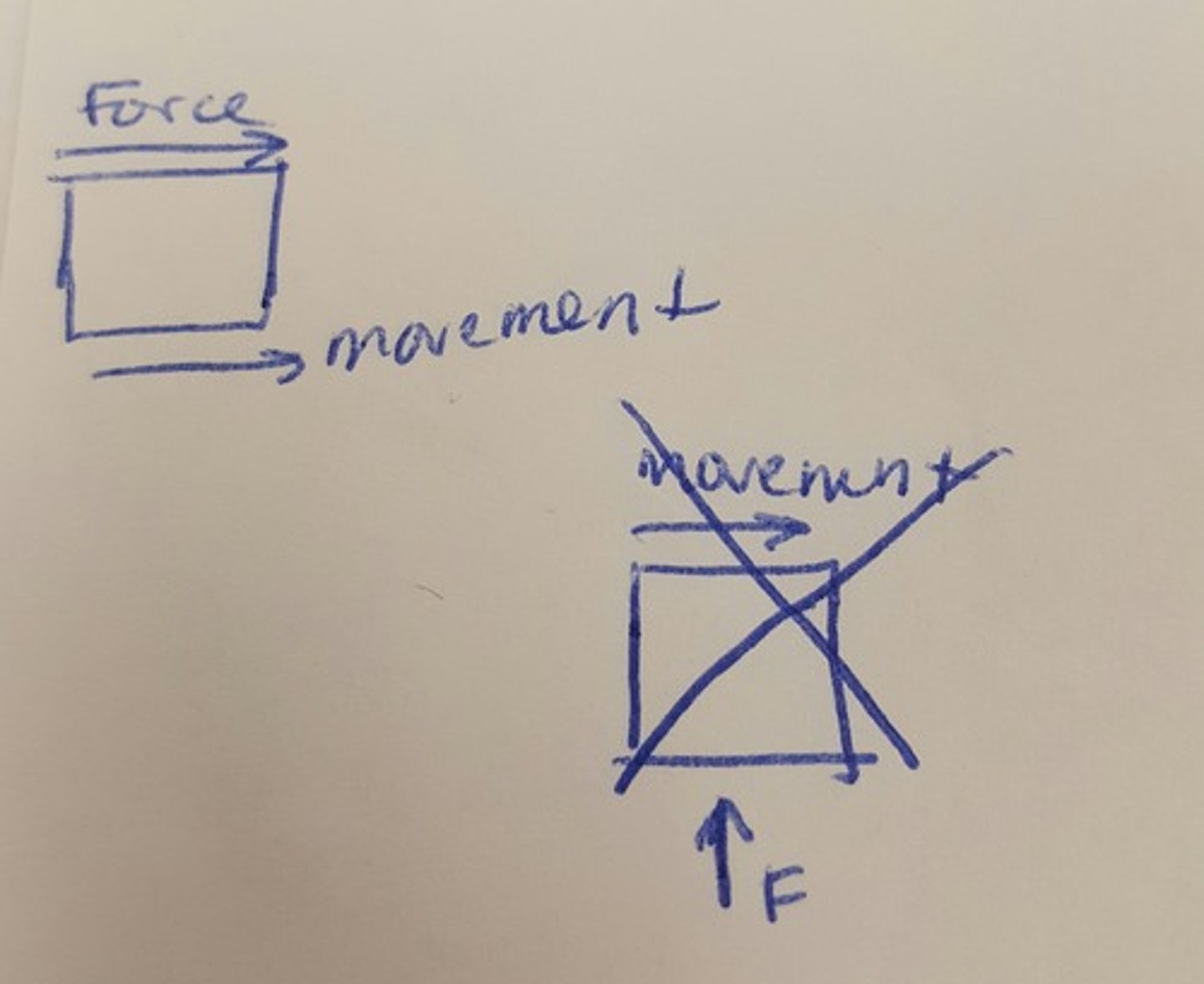
power
the rate at which work is done (how fast work is done). P=w/t, measured in watts (W).
mechanical advantage
describes how many TIMES the machine MULTIPLIES the force applied. MA=output force/input force, no units
wheel and axle
2 attached circles of different sizes. turning the wheel applies a lsmaller force over a longer distance. Ex: cranks, door knobs, faucet handles
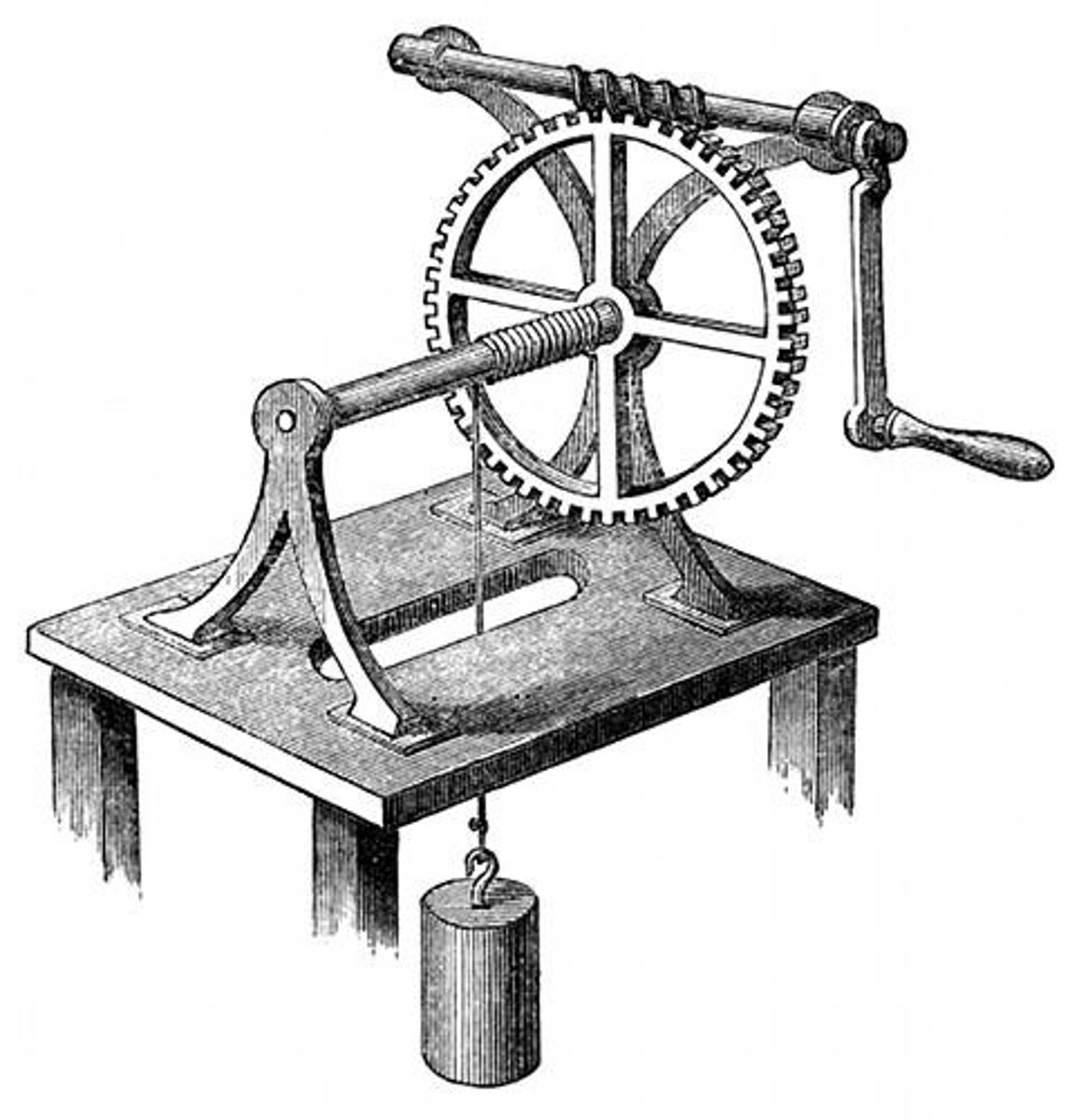
pulley
a grooved wheel that holds a rope. 2 types-fixed (rope moves), moveable (grooved wheel moves), changes the DIRECTION of the applied force, not the size of the force.
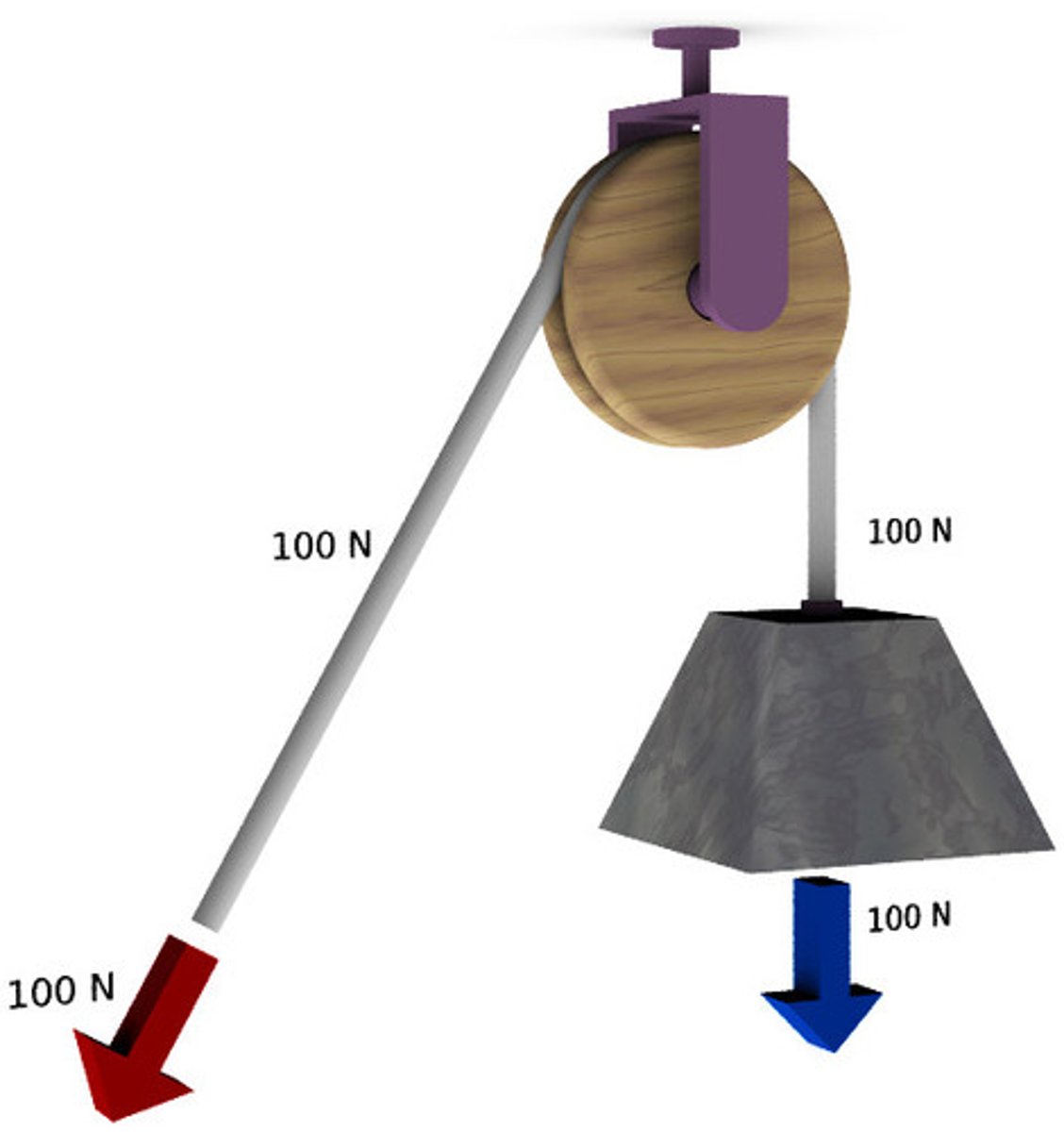
compound machine
a machine made up of 2 or more simple machines. Ex: can opener, scissors, zipper
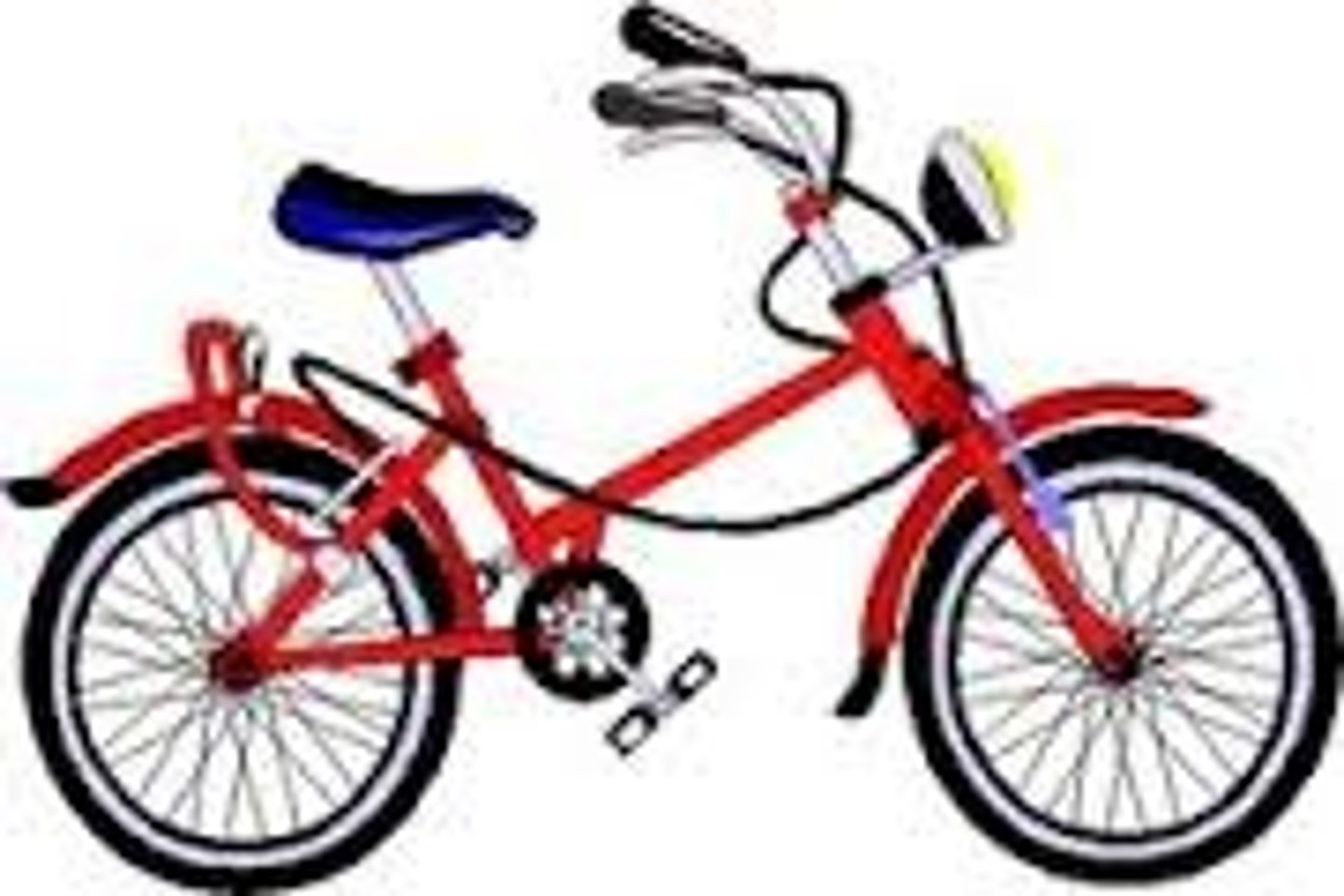
inclined plane
a straight slanted surface, reduces the force required but applies it over a larger distance. You actually do more work because you have to overcome friction, it just feels like less since it's not all at once.
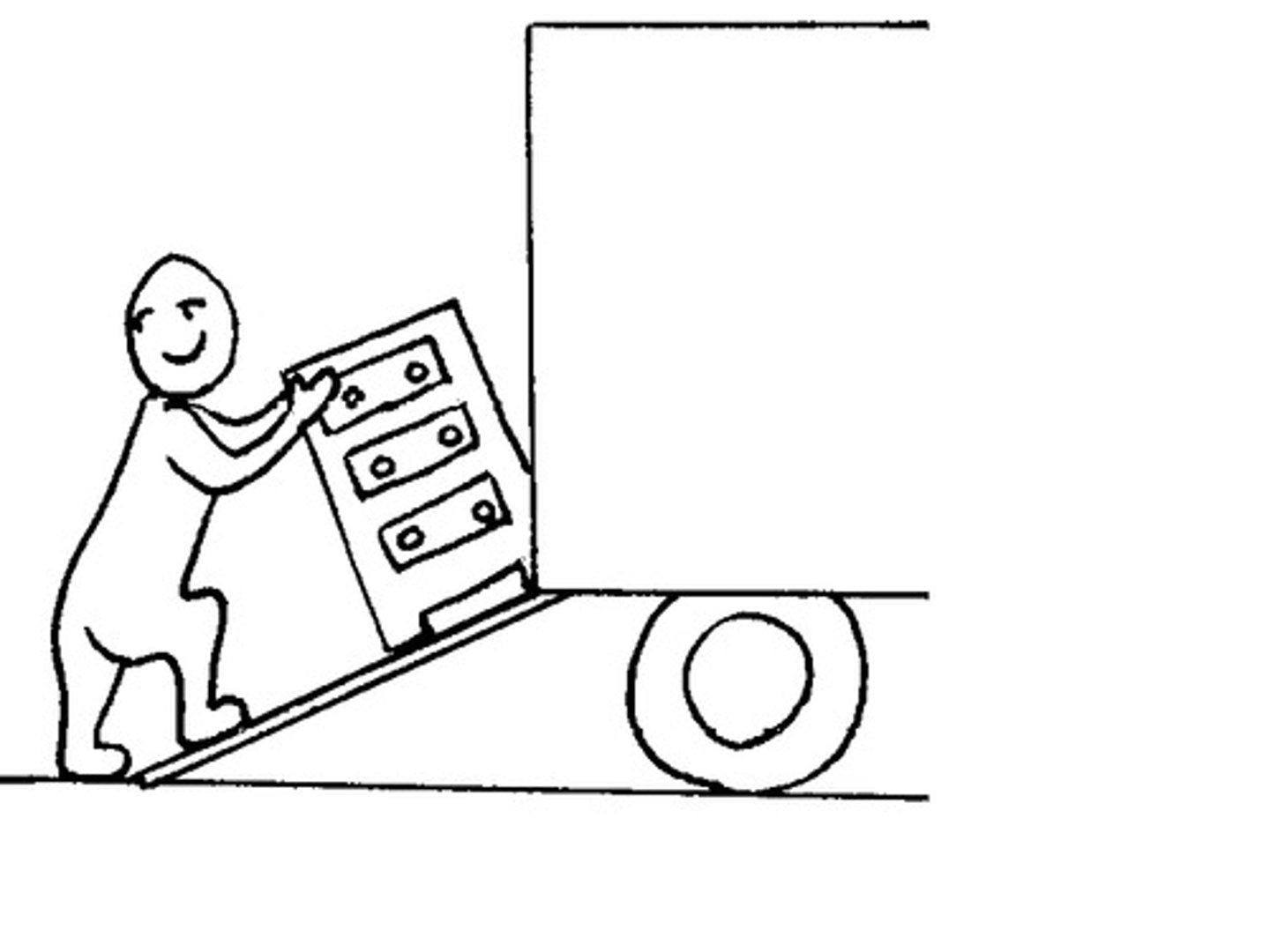
wedge
a double inclined plane that MOVES. Used for cutting. Ex: knife, axe head, chisel, teeth
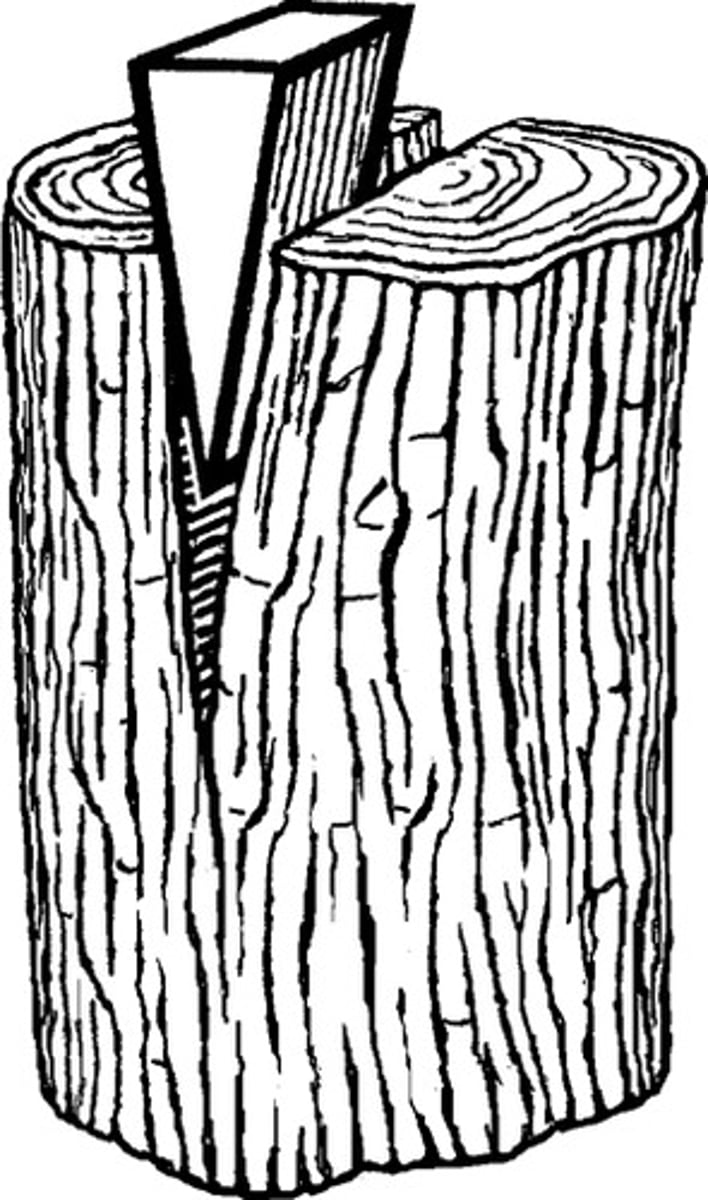
screw
an inclined plane wrapped in a spiral. A small force is applied over a very large distance. Ex: spiral staircase, screws, lids
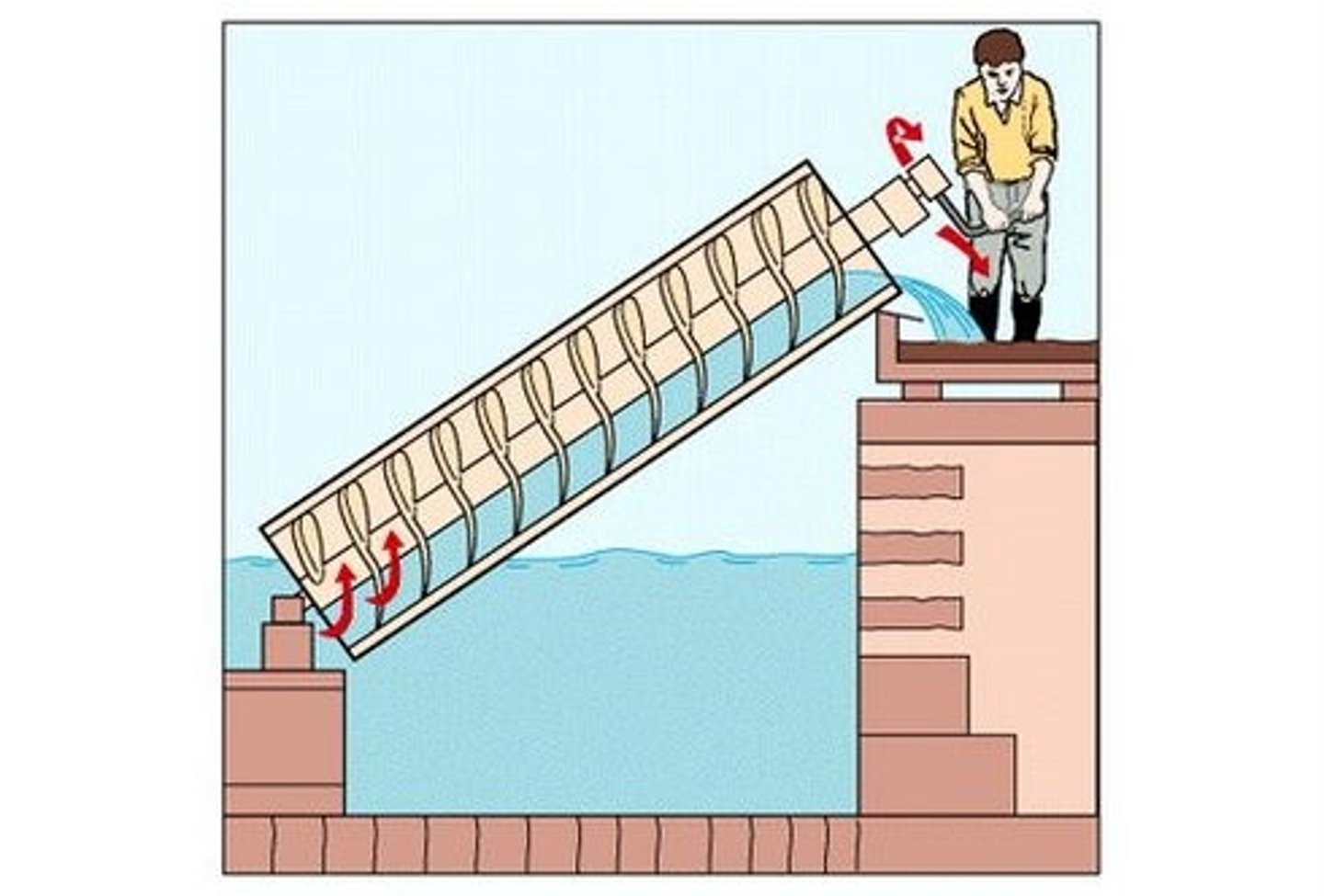
1st class lever
a bar that pivots at a fixed point called the fulcrum. Fulcrum is in between the load and the effort (applied force). Ex: see saw, crowbar
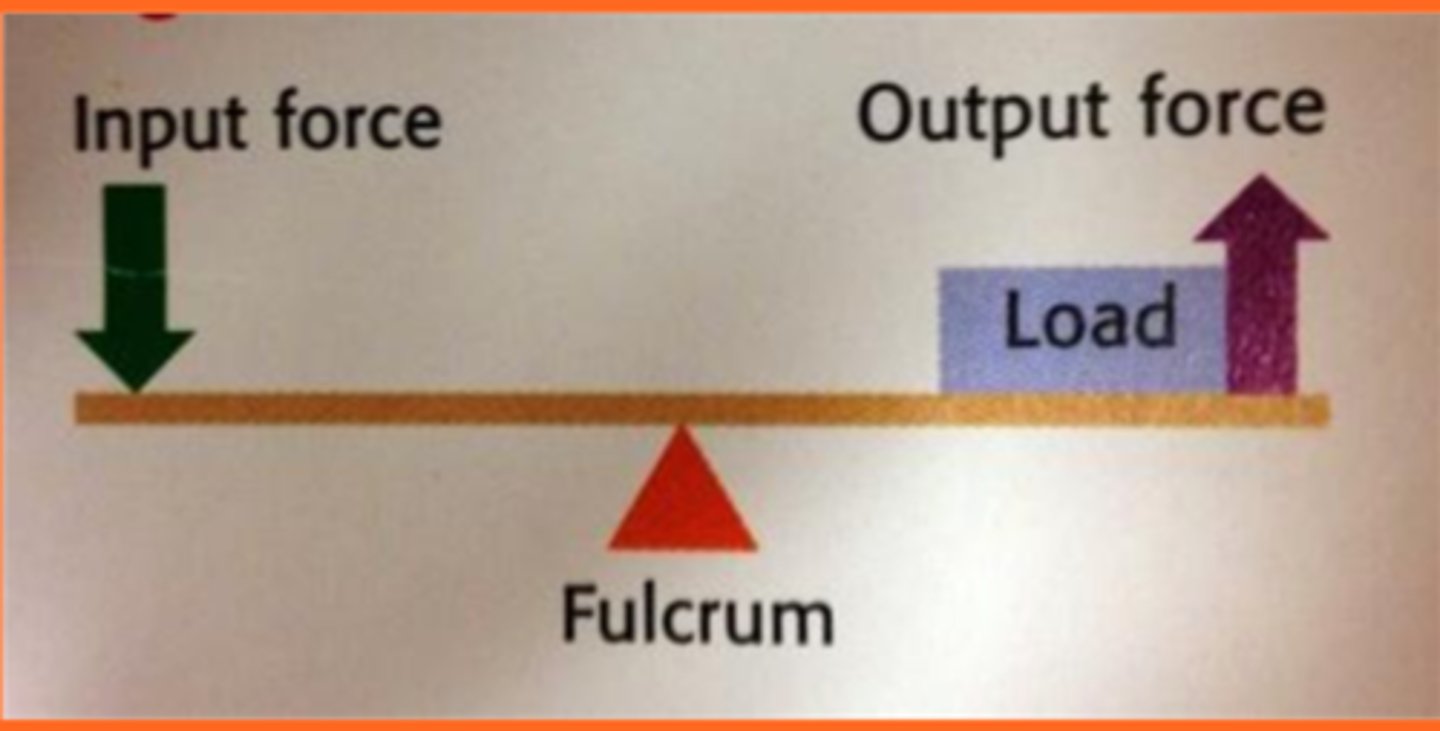
2nd class lever
a bar that pivots at the fulcrum. The load is between the fulcrum and the effort (applied force). Ex: door, wheelbarrow, bottle opener
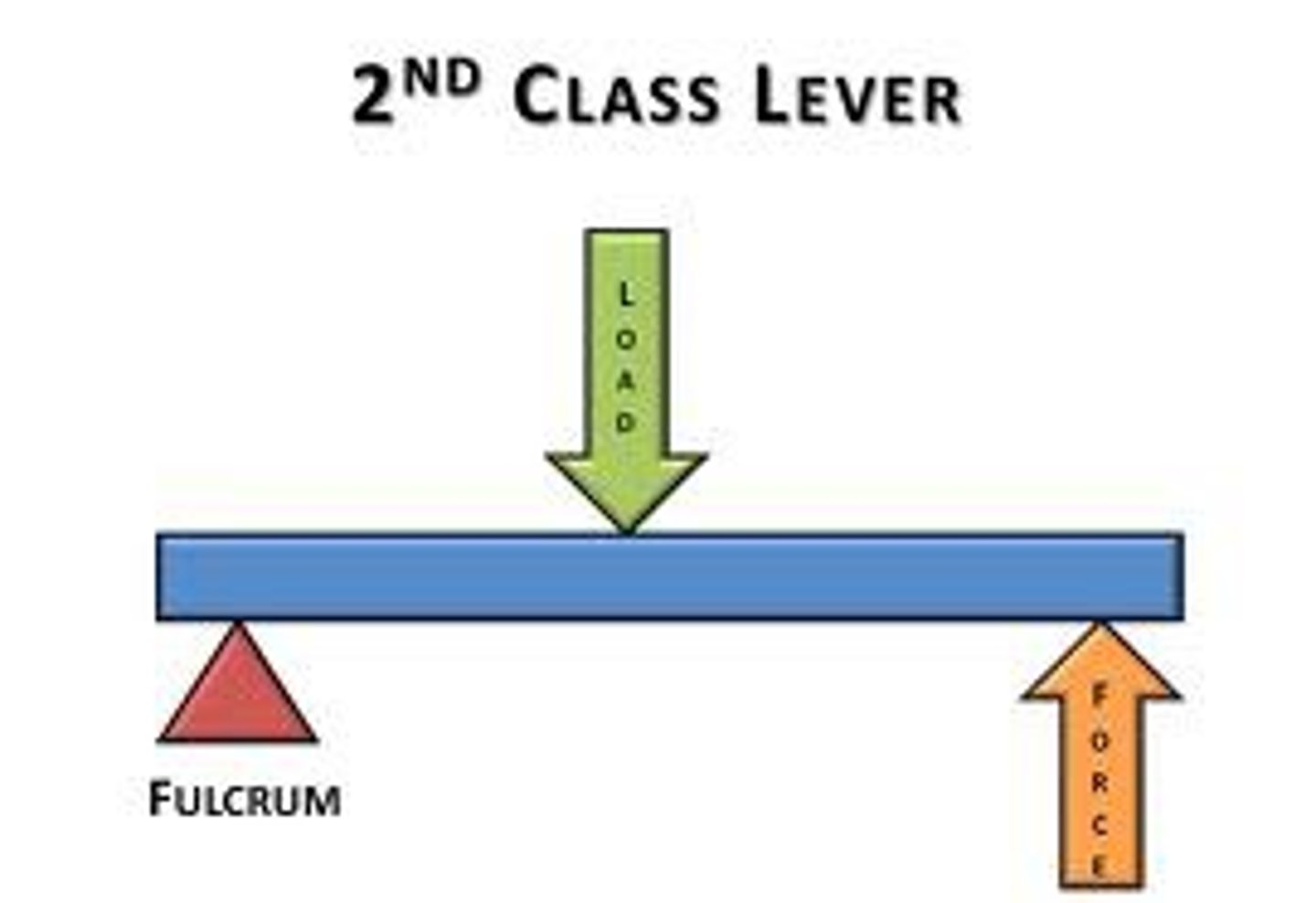
3rd class lever
a bar that pivots at the fulcrum. The effort is between the load and the fulcrum. Ex: arm (elbow), hammer, broom/rake

Joule (J)
the SI unit of work or energy
Watt (W)
SI unit of power
mechanical efficiency
a comparison of a machine's work output with the work input, how well does the machine use energy, should be less than 100%